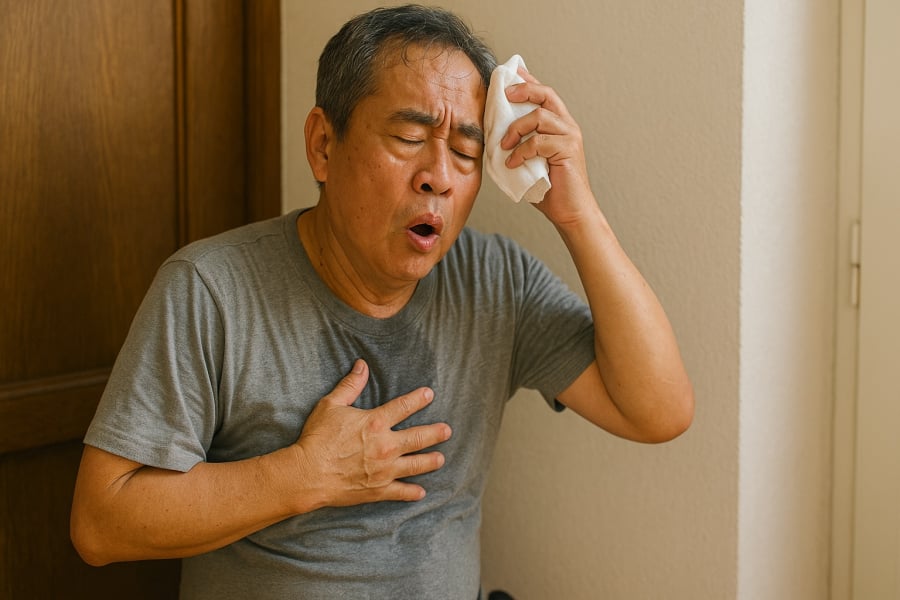## Bad Summer Habits That Can Lead to Strokes
Not Drinking Enough Water or Drinking Incorrectly
During the summer, the body loses water quickly through sweating. If you don’t replenish the necessary amount of water, your blood will become more concentrated, increasing pressure on your circulatory system and raising the risk of blood clots, a frequent cause of strokes.
Many people only drink when they feel thirsty or consume a large amount at once, which doesn’t help the body absorb and utilize water effectively. Instead, it’s better to spread out your water intake evenly throughout the day, even when you don’t feel thirsty.

Rushing to Take a Bath After Exposure to Hot Weather
After spending time outdoors, many people have the habit of taking a bath immediately to cool down. However, at this point, the body’s temperature is still high, and sudden exposure to cold water can cause blood vessels to constrict rapidly, leading to heat shock, circulatory disorders, and, in more severe cases, a stroke.
It’s best to rest in a cool place for about 15-20 minutes, wipe your body with a damp towel, or take a slightly cool shower after your body temperature has lowered.
Spending Too Much Time in a Cold Air-Conditioned Room
It may seem harmless, but sitting continuously in an air-conditioned environment below 25°C can cause heat shock when you step out into the hot weather. The sudden temperature change causes abnormal blood vessel dilation, increasing the risk of high blood pressure or strokes, especially in the elderly.
Ideally, keep the air conditioner set to 26-28°C and open the windows for a few hours every day to let in some fresh air.
Consuming Excessive Salt or Processed Foods
Salt is a factor that increases blood pressure and is a dangerous “accomplice” in stroke cases. Pickled, canned, and instant foods like ramen are high in sodium and, if consumed regularly, can damage your blood vessels over time.
In the summer, instead of eating salty foods, opt for green vegetables, light soups, and watery fruits like watermelon, orange, and grapefruit, which help cool down the body and are good for cardiovascular health.

Drinking Strong Coffee or Tea in the Afternoon
While caffeine can help you stay alert, consuming it in the afternoon or evening during hot weather can lead to dehydration, stimulate a rapid heart rate, and cause blood vessel constriction. This is especially dangerous for those with a history of heart disease or high blood pressure.
If you need a pick-me-up, opt for herbal infusions like artichoke tea or lemongrass water, or simply drink a glass of diluted lemonade, which is both refreshing and safer.
Ignoring Abnormal Body Signals
Dizziness, headaches, rapid heart rate, or feeling faint in hot weather are often overlooked as mere tiredness. However, these could be the first signals from your body about heat imbalance or blood pressure issues.
Especially for the elderly, outdoor workers, or those with pre-existing conditions, it’s important to monitor blood pressure regularly. If you experience any prolonged abnormal symptoms, rest and seek medical attention immediately.
Summer is not just a season of sunny days and vacations, but also a time to pay extra attention to your health. Strokes don’t always happen suddenly—sometimes, they are the result of seemingly harmless behaviors in our daily lives.
By making small changes in your water intake, diet, and daily habits, and by paying closer attention to your body’s signals, you can significantly contribute to preventing unnecessary health risks for yourself and your family.






























